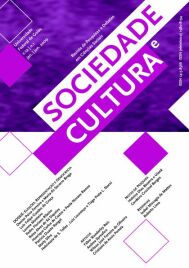Inequality, identity and citizenship
DOI:
https://doi.org/10.5216/sec.v12i1.6904Keywords:
inequality, identity, ascription, citizenship, pluralismAbstract
The article focuses on the relationship between problems of inequality and identity. Pointing out the importance, with regard to identity, of the immersion of individuals in different collective categories, it inquires into the diffi culties involved in the relationship between collective and individual autonomy. The idea of a pluralist society is defended, together with the conception of citizenship in which the civic and solidary virtues, in the sober form of a refl exive tolerance, are balanced with the “civil” values of individualism and the autonomy of the individual. A fi nal section seeks to apply briefl y the results of the previous discussion to the problem of equality in today’s Brazil.Downloads
Download data is not yet available.
Downloads
Published
2009-08-11
How to Cite
REIS, FÁBIO WANDERLEY. Inequality, identity and citizenship. Sociedade e Cultura, Goiânia, v. 12, n. 1, p. 117–126, 2009. DOI: 10.5216/sec.v12i1.6904. Disponível em: https://revistas.ufg.br/fcs/article/view/6904. Acesso em: 11 feb. 2026.
Issue
Section
Free Articles
License
Authors who publish in this journal agree to the following terms:
- Authors retain the copyright and grant the journal the right of first publication, the work being simultaneously licensed under the Creative Commons Attribution License, which allows the sharing of the work with acknowledgment of authorship and of the initial publication in this journal;
- Authors are authorized to enter into additional contracts separately, for non-exclusive distribution of the version of the work published in this journal (eg, publishing in an institutional repository or as a book chapter), with acknowledgment of authorship and of the initial publication in this journal;
- Authors are allowed and encouraged to post and distribute their work online (eg, in institutional repositories or on their personal page) at any point before or during the editorial process, as this can bring productive change as well as increases the impact and the citation of the published work (see O Efeito do Acesso Livre).



